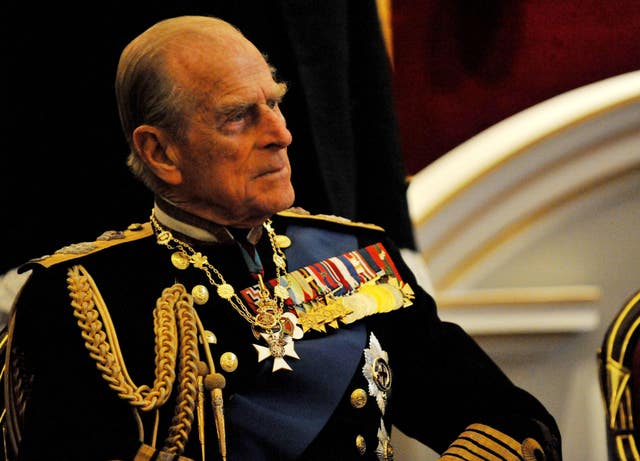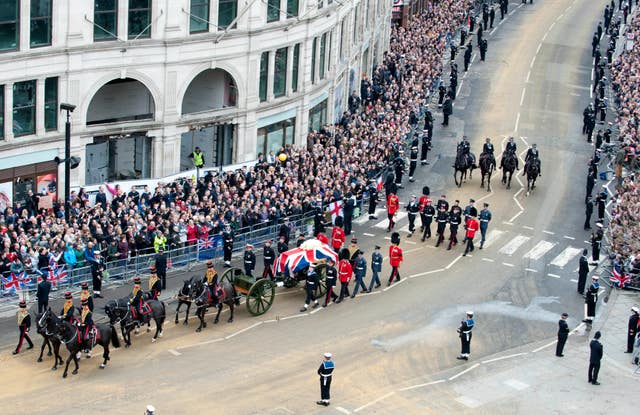
The Duke of Edinburgh is expected to be given a ceremonial royal funeral rather than a state one and will not lie in state.
State funerals are only usually reserved for the sovereign.

According to protocol, as the Queen’s consort, Philip is to be honoured with a ceremonial royal funeral, as the Queen Mother was in 2002.
His funeral is expected to take place at St George’s Chapel, Windsor – but the long-held exact arrangements have been amended in light of the coronavirus pandemic.
Buckingham Palace will be preparing to reveal the details of how the plans have been configured.
Diana, Princess of Wales, was also given a form of ceremonial royal funeral, despite no longer being an HRH.
Following her death in 1997, plans had to be adjusted to take into account the public’s response.
The route that Diana’s coffin took on its way to Westminster Abbey was extended to allow more people to pay their respects and, in a break with convention, the Union flag was eventually flown at half-mast above Buckingham Palace amid uproar over the bare flagpole when the Queen was not in residence.
The duke’s own wishes as to what should happen after his death will have been taken into account, as will those of his family.
Ceremonial royal funerals are also held for the heir to the throne and for members of the royal family who hold high military rank.

State funerals have, on rare occasions by order of the monarch and by a vote in Parliament providing the funds, been held for those other than sovereigns, including Lord Nelson and wartime prime minister Sir Winston Churchill.
Margaret Thatcher’s funeral in April 2013 was a ceremonial funeral, with her coffin taken in procession to St Paul’s Cathedral on a gun carriage drawn by six black horses.
To the outsider, there is little difference between a state and ceremonial funeral.
Both can include a lying in state – as did the Queen Mother’s although Philip’s will not – and a military procession.
The duke’s funeral is under the direction of the Lord Chamberlain – the most senior official of the Royal Household.


Comments: Our rules
We want our comments to be a lively and valuable part of our community - a place where readers can debate and engage with the most important local issues. The ability to comment on our stories is a privilege, not a right, however, and that privilege may be withdrawn if it is abused or misused.
Please report any comments that break our rules.
Read the rules here